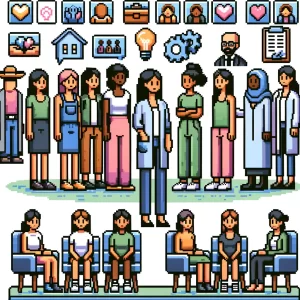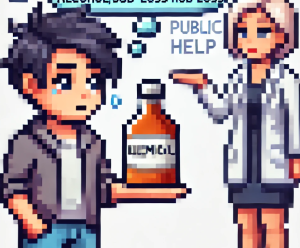
The Impact of Legal Cannabis on Canadian Youth
Since Canada legalized recreational cannabis in 2018, the landscape of cannabis use has changed significantly, particularly among youth and young adults. This shift has raised important questions about the impact of cannabis on young people’s health and well-being. A recent scoping review has mapped the extent, nature, and range of evidence available on youth and young adult cannabis use in Canada since legalization. This blog breaks down the findings of the review, highlights the research’s significance, and explores why these insights matter for public health practitioners and the general public alike.
The Cannabis Landscape Post-Legalization
Canada’s legalization of recreational cannabis aimed to regulate its sale and distribution, protect public health, and restrict youth access. However, Canada has one of the highest rates of cannabis use worldwide, especially among those under 25. The scoping review analyzed 47 studies to understand the effects of legalization on young Canadians. Here are some key findings:
- Increased Use Among Young Adults: Cannabis use has risen among 18-24-year-olds, with some studies noting significant increases post-legalization.
- Emergency Department Visits: There has been an uptick in cannabis-related injuries and emergency department (ED) visits, particularly among children and teens.
- Mixed Results for Youth Under 18: While some studies show increased use, others report no significant changes in cannabis consumption among younger teens.
- Perceptions and Normalization: Many young people view cannabis as less harmful, with a growing normalization of its use in everyday life.
- Prevention Tools: Limited but promising studies on prevention strategies suggest that awareness can be raised effectively through targeted programs.
Why It Matters
Health Impacts
Cannabis use among youth is linked to several adverse effects, including psychosis, anxiety, depression, and impaired cognitive performance. These risks are particularly concerning given that young people’s brains are still developing. Increased ED visits for cannabis-related injuries highlight the potential physical dangers, such as respiratory distress and cannabinoid hyperemesis syndrome.
Public Health Perspective
From a public health standpoint, understanding cannabis use patterns and their impacts is crucial for developing effective policies and interventions. The review underscores the need for a robust public health approach that includes:
- Prevention Strategies: To minimize harm, it’s vital to implement strategies that delay the onset of use, reduce frequency and risky behaviors, and promote lower-risk use guidelines.
- Public Education: Enhancing public awareness about the risks associated with cannabis use is essential. This includes educational campaigns targeting youth and young adults, emphasizing the potential mental and physical health impacts.
- Regulation and Enforcement: Strict enforcement of age restrictions and regulation of cannabis commercialization can help limit youth access to cannabis products.
What are your thoughts?
- Personal Experiences with Public Education Campaigns: Have you noticed any public health campaigns about cannabis use in your community? If so, what impact do you think they have had?
- Perceptions of Cannabis Use: How do you perceive the risks associated with cannabis use compared to other substances like alcohol or tobacco? Has your perception changed since the legalization of cannabis?
Conclusion: Moving Forward
The legalization of cannabis in Canada has brought both opportunities and challenges. While it aims to control and regulate the use, the evidence suggests that young people are still at risk. As public health practitioners, policymakers, and community members, it is crucial to stay informed and actively participate in conversations about cannabis use. By promoting education, enforcing regulations, and supporting research, we can work towards a healthier future for Canada’s youth.
Be a Health Innovator – Get Weekly Updates!
Stay informed and active. Subscribe for free and share this blog to make a difference in public health.
About the Author
Dr. Jonathan P. Scaccia, PhD, is a clinical-community psychologist with expertise in public health science and practice. He has led evaluation and research initiatives focusing on health equity, vaccine distribution, and organizational readiness. Dr. Scaccia has contributed to federal suicide prevention programs and vaccine equity strategies. He has been recognized for his impactful work and is a leading voice in advancing public health practices.



